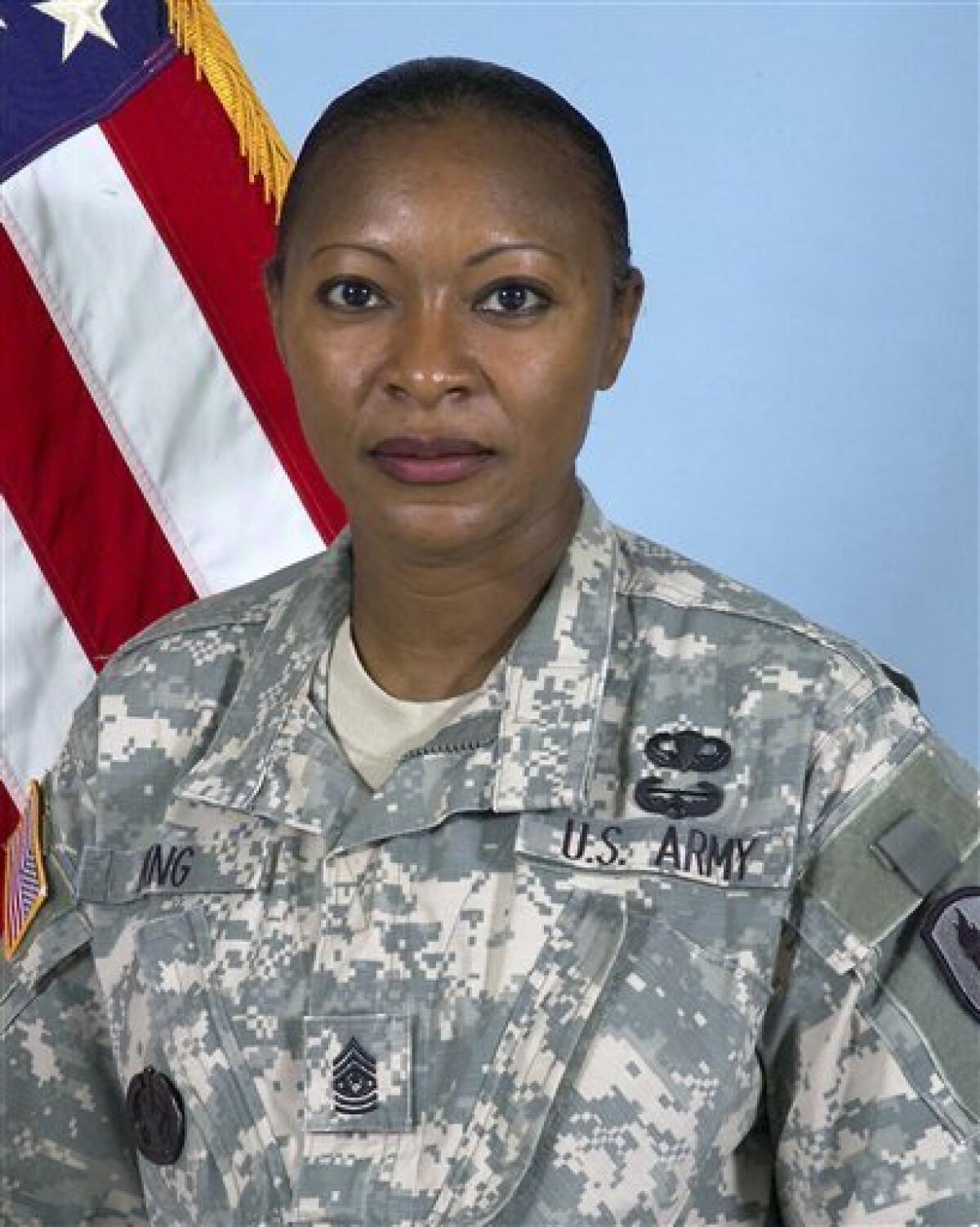Army suspends 1st female drill sergeant leader

The Army has suspended the first woman to lead its drill sergeant school while it investigates an undisclosed personnel matter, the service said Thursday.
A spokesman for the Army’s Training and Doctrine Command said Command Sgt. Maj. Teresa King remains commandant of the school at Fort Jackson, near Columbia, but is suspended during an investigation.
Spokesman Harvey Perritt said he cannot disclose the reason for the suspension, which he described as a personnel matter.
King told The Associated Press on Thursday that she cannot talk about the matter.
“I can’t speak about it,” the 50-year-old said. “I have to have you speak with the Army’s public affairs officers.”
King was named commandant at the school in 2009, which handles all training for the order-barking drill sergeants.
The Pentagon ordered the Army to consolidate all schools for the senior-level sergeants at Fort Jackson in 2005 in a cost-saving move.
Perritt said the suspension decision was made by Maj. Gen. Richard Longo, the deputy commanding general in charge of the Army’s basic and advanced individual training, which comes under the Training and Doctrine Command located at Fort Eustis, Va.
King’s appointment in 2009 came amid much fanfare, since no woman had risen to such a prominent position among the service’s senior enlisted ranks.
Accompanied by a reporter on a barracks tour, the sharecropper’s daughter from North Carolina exuded a tough attitude toward her charges, demanding that each stand tall and respond to queries promptly. Yet her questions showed a concern for her charges and the deadly environs jobs they could be entering.
“I have a family in the Army. It is my family,” King said.
There were few women training alongside men when she first entered the military in 1980, just out of high school.
King rose to become the first female sergeant named to oversee the heart and soul of Army fighters: the headquarters company of the 18th Airborne Corps at Fort Bragg, N.C., where she was responsible for 500 paratroopers, 22 sergeant majors, 22 colonels and three general officers. She served in South Korea and Europe and held jobs at NATO and the Pentagon.
While opportunities for women have increased over the past two decades, they are still excluded from assignments where soldiers engage in direct combat, such as infantry and tank units.
But the battlefields of Iraq and Afghanistan have shown that front lines no longer exist, and even accountants or medics in the rear can find themselves in the heat of battle and must defend themselves and their buddies.
“I have one chance to do it, and if I don’t get it right, that soldier could not survive on the battlefield,” King said when she was named to the post.